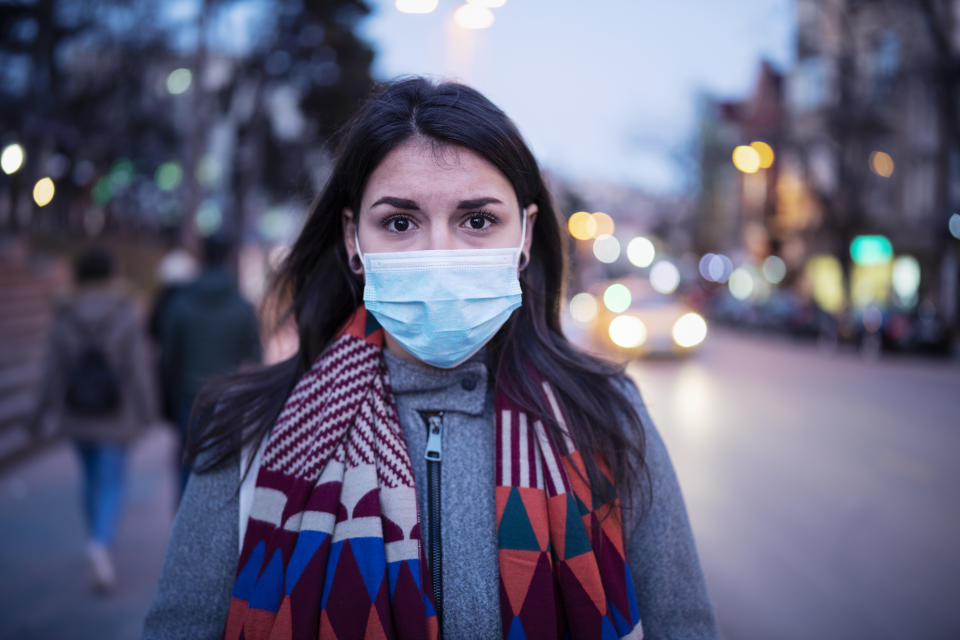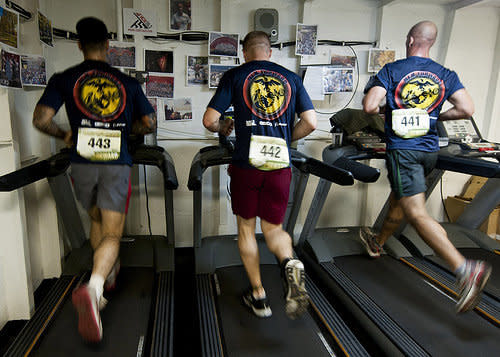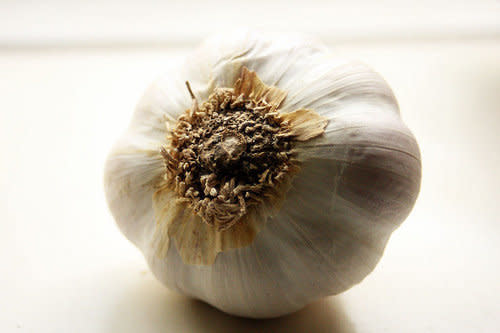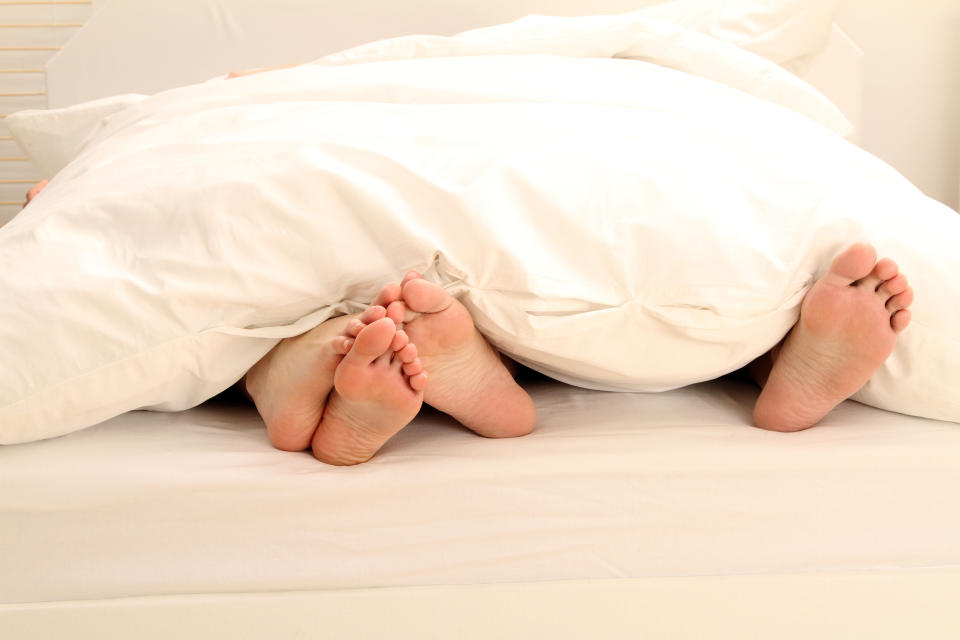How The Coronavirus Could Affect The Stock Market And Economy
The stock market took another major hit Monday as fears grow over how the coronavirus might wreak long-term economic havoc.
Within the first few minutes of trading Monday morning, the S&P 500 dropped as much as 7.4% and trading was temporarily halted so that investors could catch their breath. The Dow Jones was also briefly down more than 2,000 points before readjusting to the most recent loss of 1,865 points, or 7.2%. The Nasdaq has so far dropped 6.2%.
The sharp drop is just the latest following a couple of weeks of volatility. The Dow fell 1,200 points on February 27 and another 350 points the following day, concluding its worst week since the 2008 financial crisis. Even though markets rallied briefly in early March, thanks to emergency measures taken by the Federal Reserve, the market ultimately continued tanking.
Many are left wondering what we can expect from the market as the virus continues to spread. Is this just a temporary dip, or should we all be battening down for further market downturns?
According to a new survey by Prudential, 45% of respondents are worried a contagious disease outbreak will limit their ability to work, while 45% are also concerned about losses to investment and retirement savings. Fifty-four percent say they are not financially prepared to handle an outbreak.
How confident are you in your ability to weather the financial effects of the coronavirus? Here’s what experts say could happen to the stock market and general economy if coronavirus continues to be a threat, and what you can do to protect yourself.
How has the coronavirus impacted the economy so far?

In addition to a volatile stock market, global GDP growth has begun to slow in response to the outbreak. As travelers are advised to stay home, demand in related industries has diminished. Existing supply chains have also begun faltering. In other words, “Demand for those critical factors which help link the global economy, such as oil and aviation, has plummeted,” said Ahmed Rahman, an economist and associate professor at Lehigh University.
Here in the U.S., the Fed recently decided to take action against any potential economic fallout by cutting the target rate to just below 1.25%, down from about 1.75%. The goal is to stimulate economic growth, such as investing and homebuying, by making it cheaper to borrow money.
“The Federal Open Market Committee has delivered monetary policy medicine investors were looking for to address concerns about the widening economic impacts related to the coronavirus outbreak,” said Mark Hamrick, senior economic analyst for Bankrate, in a statement. “The full emergency 50 basis points reduction is the first since the financial crisis, a sign how serious central bankers regard the downside risks to the economy.”
However, now that rates are down to around 1%, there’s little more the Fed can do to further protect against a slowing economy. And though lower interest rates can help to spur economic growth, they can’t stop people from getting sick. “Lower interest rates do little to make consumers and businesses feel substantially more confident about the future when a health crisis is spreading around the world,” Hamrick said. “It also cannot address the hobbled supply chains, including manufacturing capability in China and South Korea. Still, the Fed is doing what it can to try to keep the economy out of recession.”
What’s in store for the future?
If the coronavirus continues to spread and reaches the level of a pandemic, the issues above could certainly get worse. For one, governments would likely have to stop people from congregating in large numbers, temporarily shutting down airports, malls, schools and factories.
Italy, for example, has ordered a massive quarantine that affects more than 16 million people. Areas impacted by the shutdown include Milan, Venice and the northern region of Lombardy, which is considered the financial heart of the country.
And because travel would all be halted, hotels, cruise ships, airlines and other travel-related companies would experience major losses that can’t be recovered. That could spell particular trouble for the U.S., where the majority of economic activity comes from service industries.
Even so, the impact thus far hasn’t been extraordinary, so it’s hard to predict what might happen.
“While coronavirus is certainly a serious global health issue, as of this moment, it has not had a significant negative impact on the U.S. economy,” said Robert R. Johnson, a professor of finance at Creighton University. The problem, he said, is at this point in time, the extent of the outbreak is uncertain.
However, even in the most optimistic scenario, it is likely to have a material short-term impact on GDP growth, according to Johnson. Most economists are expecting to lose a minimum of 0.1% to 0.5% off of first quarter 2020 estimates.
What about the dreaded “R” word? “After an 11-year expansion and a fivefold increase in the stock market, investors are understandably worried that maybe now we will get that recession so many have been worried about,” said Jurrien Timmer, director of global macro for Fidelity Management & Research Company. Though he hesitates to engage in market speculation, Timmer said that he doesn’t see much evidence that we have the conditions for either an inventory cycle or a financial crisis.
“What I do think could happen, however, is that this double-whammy of a demand and supply shock could trigger a technical recession ― a quarter or two of negative GDP growth and negative earnings growth ― but that doesn’t have the trappings of a typical recession in which there are many layoffs and tightening financial conditions.”
Rahman added that other effects from the virus are highly uncertain. “Much will depend on its severity,” he said. “If what we are witnessing is the outbreak of a rather severe flu, most macroeconomic models suggest global growth will lower a percentage point or two, to roughly 1%. Anything much worse, of course, means a shrinking world economy.”
Take steps to protect your money against coronavirus risk.
With all this said, what can you actually do to protect your money? “This viral outbreak has produced the apotheosis of what investors hate most — uncertainty,” Rahman said. But even though the future is uncertain, there are steps you can follow to mitigate risk. In fact, below are a few best practices you should follow even when we aren’t in the midst of a global health scare.
Check your asset allocation. Ensure it’s in line with your risk tolerance and appropriate for your age group or time horizon, said Melissa Ridolfi, vice president of retirement and college leadership at Fidelity. Alternatively, “consider investing in a target date fund, which may provide more peace of mind during periods of volatility,” she said.
Make sure you consider a diversified investing strategy. Your portfolio should have exposure to different areas of the markets, including U.S. small- and large-caps, international stocks and investment-grade bonds, Ridolfi said. This will help manage the overall risk in your portfolio to your age, risk tolerance and goals.
Rebalance your portfolio if needed. “Portfolio drift can happen during bull markets when stocks rise and one’s asset allocation deviates to a higher equity allocation,” Ridolfi said. Make sure your portfolio is balanced and your equity allocation is in line with your goals.
Consider meeting with a financial adviser. You might find it helpful to speak with a professional who isn’t emotionally invested in your finances, who can help you set goals and stick to them even during stressful times like these.
This article has been updated to reflect that Prudential’s survey found that 54% of respondents do not feel financially prepared. The information initially provided indicated incorrectly that 54% did feel prepared.
Related...
What Will It Be Like To Work During A Coronavirus Outbreak?
How Long Can Coronavirus Live On Surfaces, And Does Disinfecting Work?
Will Coronavirus Slow Down In The Warmer Months Like Flu Season?
Also on HuffPost
Love HuffPost? Become a founding member of HuffPost Plus today.
Hand Washing

Sleep

Exercise

Zinc

Garlic

Water

Skipping Happy Hour

Laughter

Massage

Sex

This article originally appeared on HuffPost.

